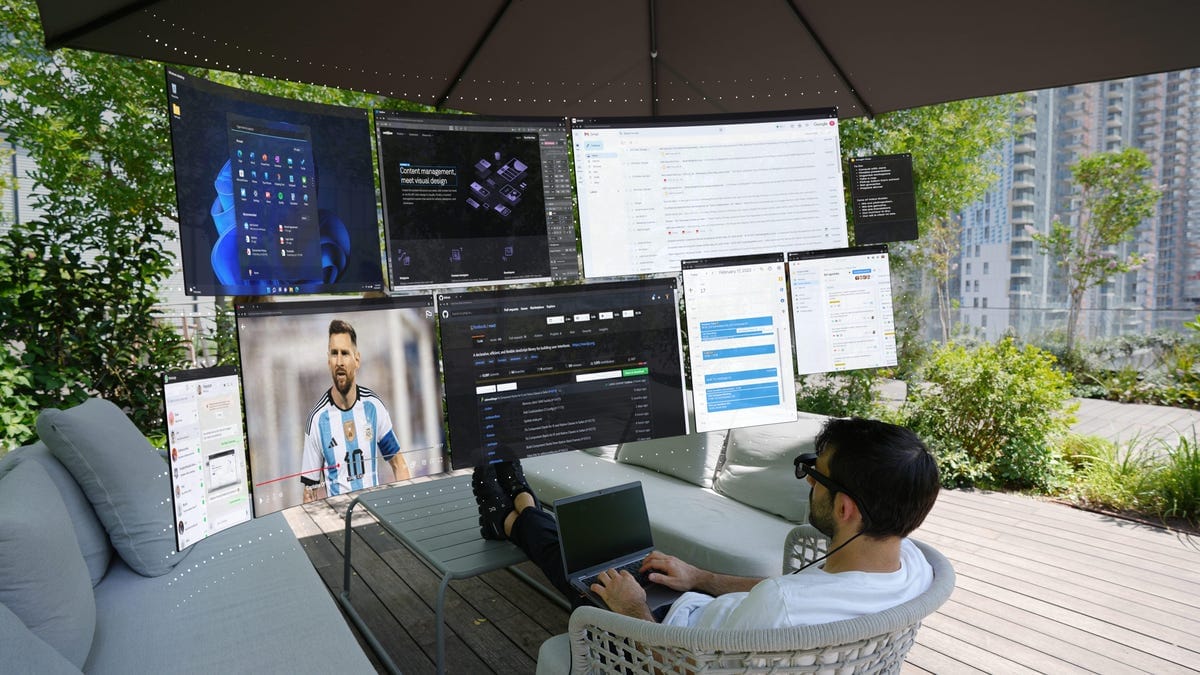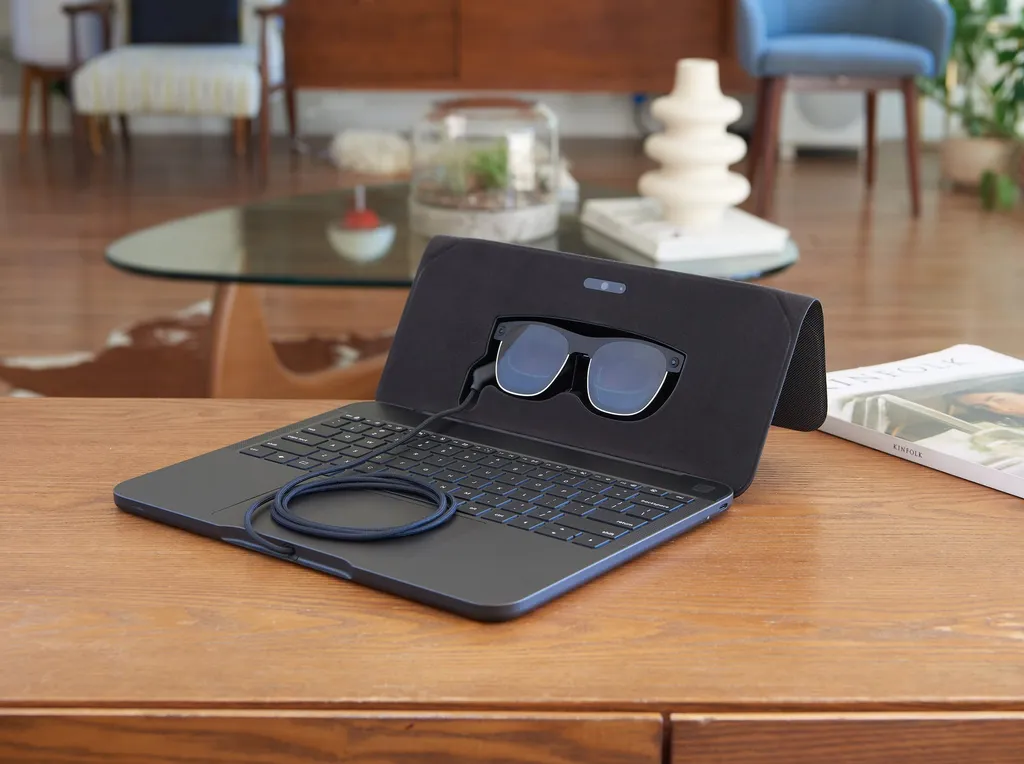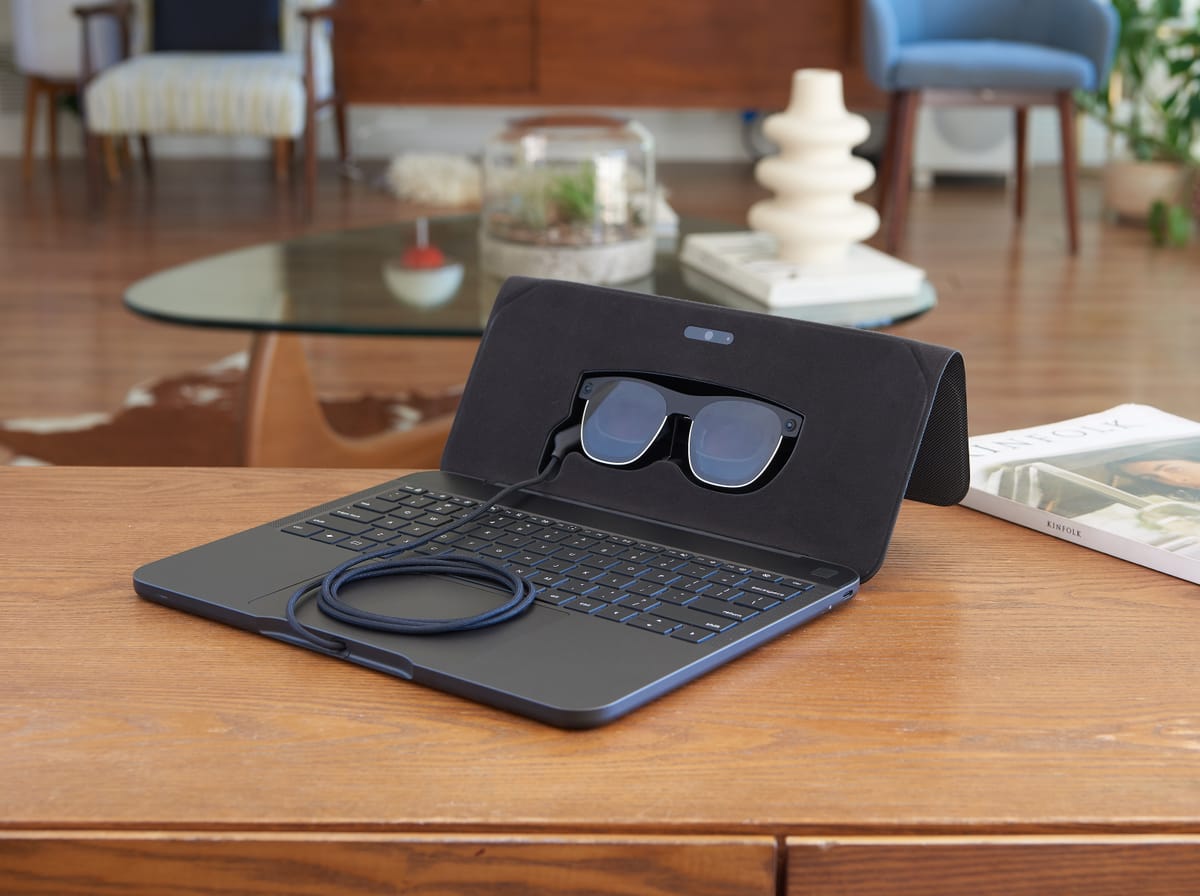Sightful has canceled Spacetop G1 and says it will refund all preorder deposits.
Spacetop G1 was set to be a screenless laptop with built-in Xreal Air 2 Ultra AR glasses, priced at $1900. It would have been powered by Qualcomm's Snapdragon 8 Gen 2 chipset, running Sightful's proprietary Spacetop OS operating system.
Sightful has emailed everyone who preordered Spacetop G1 to offer them a refund of their $100 deposit, and the company will no longer be shipping hardware at all, as it first confirmed to CNET.
Instead, Sightful plans to build AR system software for using Xreal Air 2 Ultra on Windows laptops with an NPU, meaning those with Qualcomm Snapdragon, Intel Core Ultra, or AMD Ryzen AI chipsets.
This software will take the canceled hardware's name Spacetop, and continue the spatial computing concept of Spacetop OS. But rather than just spawning floating web browser windows, it will now spawn Windows applications from your laptop.
The idea is that once you have the Spacetop Windows software installed, you just connect the Xreal glasses via USB-C to your laptop, with the laptop providing both power and compute, and everything should work automatically.
Xreal glasses already support showing your Windows laptop's screen as a head-fixed virtual monitor, but Spacetop software will apparently allow both 6DoF positional tracking and spawning of multiple Windows applications in space, not confined to a screen paradigm.
Sightful's founders Tamir Berliner and Tomer Kahan, both ex-Magic Leap executives, say the decision to shift strategy was taken because laptops getting NPUs now mean they can run 6DoF tracking without compromising performance and battery life. Being able to achieve an AR spatial computing workspace with the Windows laptop you already own, or at least the next laptop you were going to buy anyways, also makes for a much wider market than what would have essentially been a $1200 ($1900 minus the glasses) single-purpose spatial computing Chromebook without a screen

But regardless of how transparent AR spatial computing is delivered, a custom laptop or your own, the limiting factor remains the field of view. As we noted in our review of Nreal Light, which had a very similar field of view, you'll only see all the floating windows at once if they're placed several meters away. At more reasonable viewing distances you'll have to turn your head more often than with physical monitors and remember where applications are. This is currently the key tradeoff of transparent AR versus opaque headsets with passthrough cameras, and why Meta's Orion prototype is praised for finally solving it - albeit not in a way that can be mass produced any time soon.
The Spacetop software for Windows is set to release by the end of this year, exclusively running on laptops with an NPU, which Microsoft brands Copilot+ PCs.
































